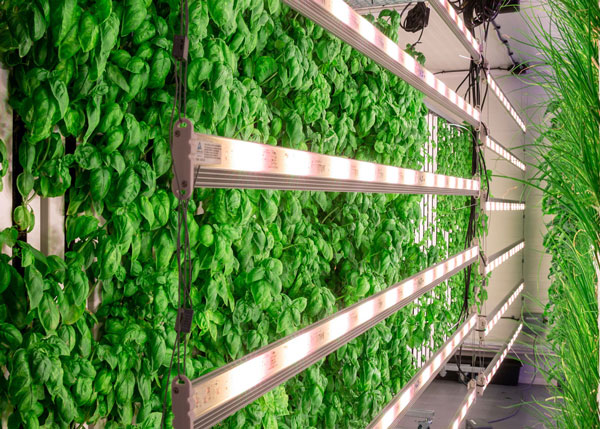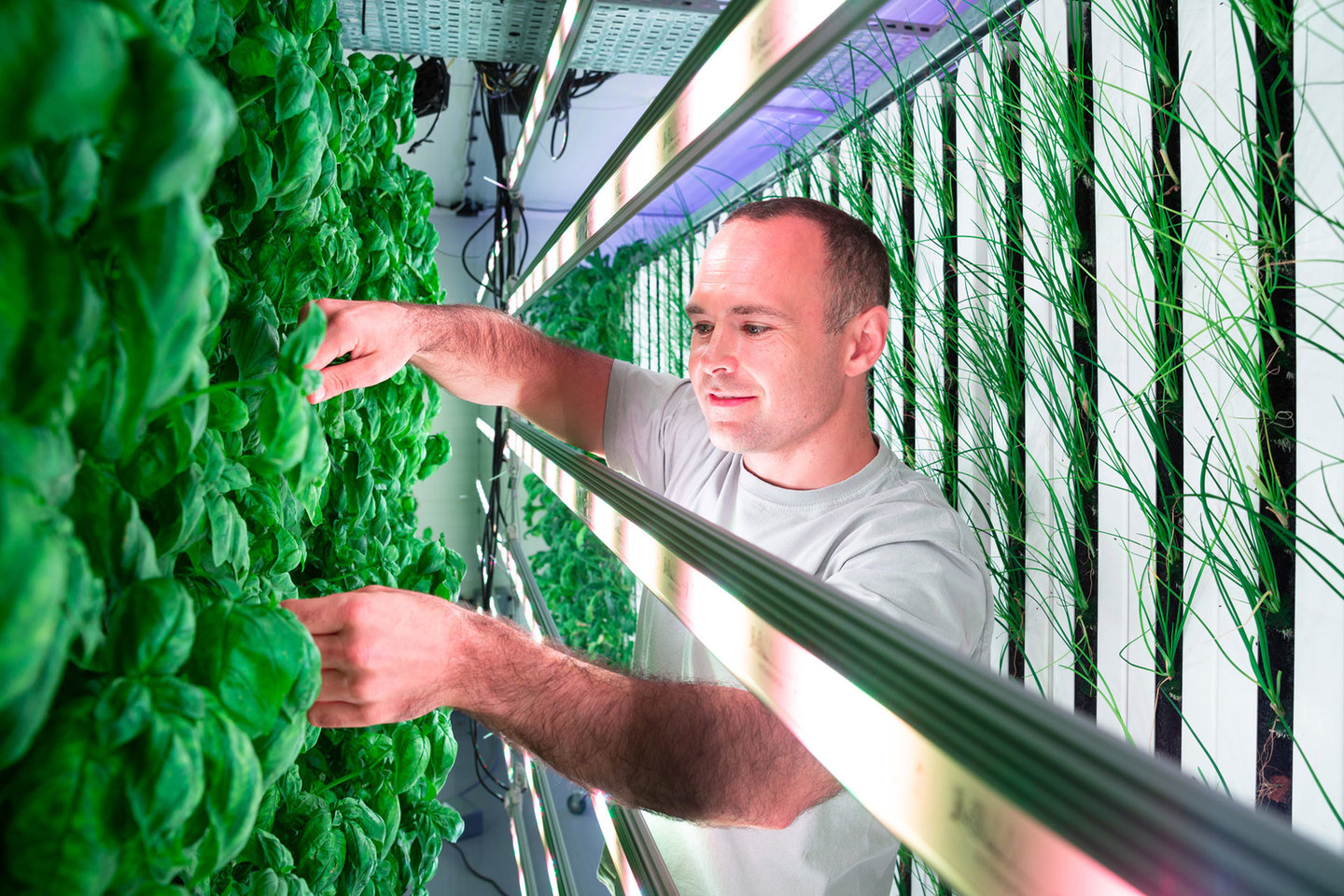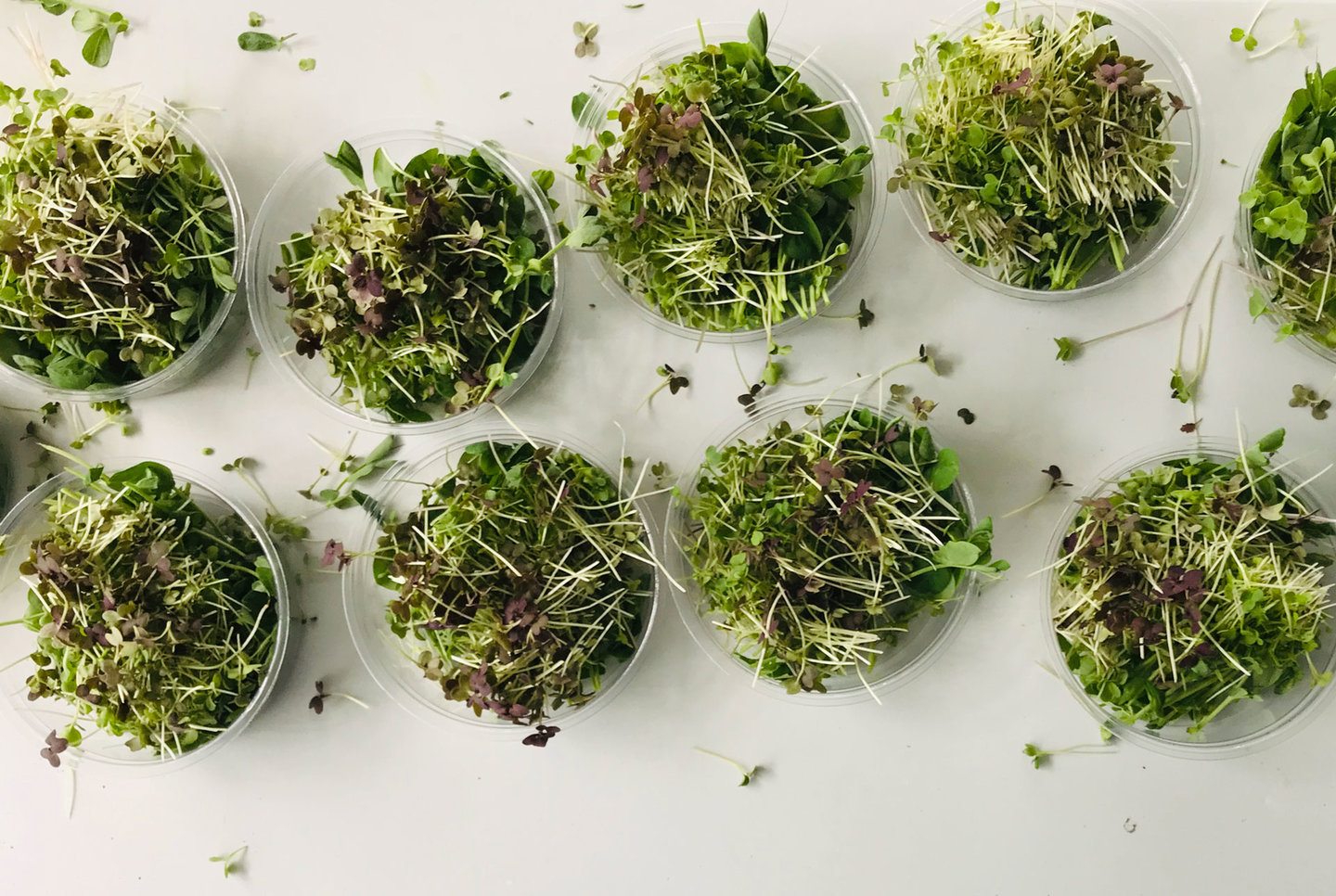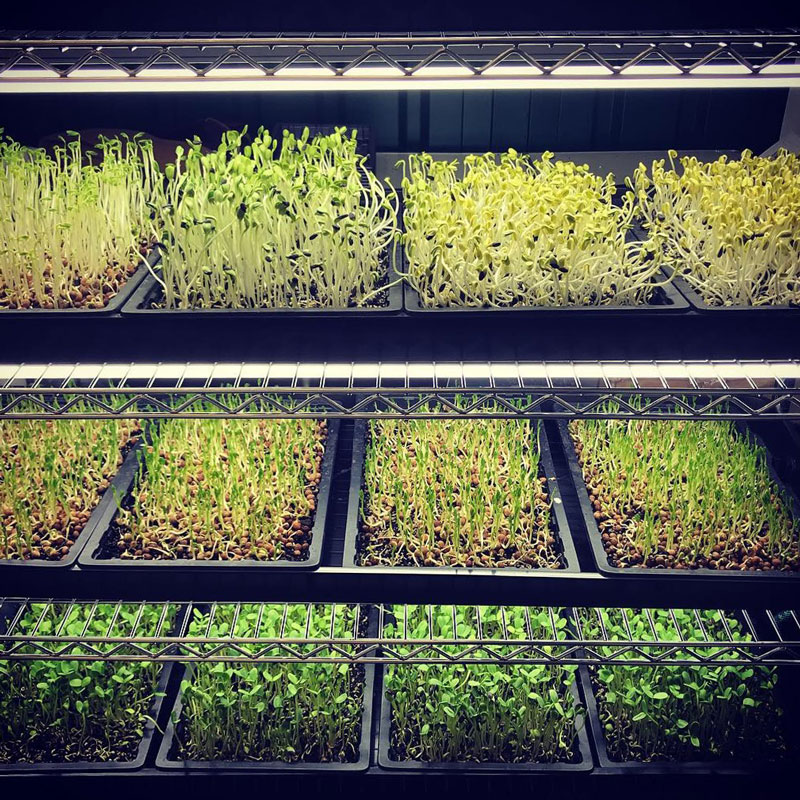Startups
How Square Mile Farms is Bringing Vertical Farming to the Office
London-based startup Square Mile Farms is making waves with its efforts to bring vertical farms to the corporate office environment. Ellen Daniel speaks to co-founder Jonathan Ransom about the benefits of vertical farming and how the startup is transforming the urban food supply chain

A rooftop of a central London office in bustling Paddington Central may appear to be an unlikely location for a farm. But for one startup, it presents a valuable opportunity for innovation.
According to the United Nations, by 2030 60% of the global population will live in urban areas. With the world’s population expected to reach 9 billion by 2050, 60% more food will be required to meet demand.
The issue of how to feed this growing urban population while minimising environmental impact is one that must be addressed urgently.
In this context, a number of novel farming methods have emerged, looking to address some of the problems that arise from traditional farming methods and food supply chains.
With the help of AgTech, which aims to disrupt the different stages of the agricultural supply chain using digital technology, a number of startups have emerged to take one of the key challenges facing the urban population.
Square Mile Farms is one company re-thinking how our food is grown. A far-cry from what is typically associated with farming, Square Mile Farms bases its activities in the corporate office, repurposing what would otherwise be unused space for the production of fast growing but nutrient-rich greens, herbs and microgreens.
“About year ago, me and my business partner, Patrick, were talking about agriculture and the built environment and the need for a more sustainable food system that also had the health of the individual and in mind,” says co-founder Johnathan Ransom.
“It was becoming increasingly evident that about 50% of our fresh produce in the UK is imported, which means it's actually quite difficult to get quality produce that is packed full of nutrients, that's tasty and looks good.
"And my background was in property. So we got talking about whether or not we could make use of surplus space within the built environment to grow produce, and we decided to give it a shot.”
Square Mile Farms: Bringing farming to the corporate world
The startup currently has a rooftop microfarm at 2 Kingdom Street, London, the location of Microsoft’s European headquarters, as well as other installations in Paddington and Mayfair. It hopes to roll out up to 20 new farms over the coming year.
Square Mile Farms uses a technique called hydroponics. This means that plants are grown in the absence of soil, under LED and florescent light, with nutrient-rich water passed over the roots instead. They are grown in vertical towers in order to maximise space.
“They're controlling the environment in which the plants grow to mimic their perfect conditions.”
This allows for controlled environment farming, with the plant’s environment carefully monitored to maximise yield and allow plants to grow all year round.
“What they're doing is they're controlling the environment in which the plants grow to mimic their perfect conditions,” says Ransom.
“So the inputs will be things like light, humidity, CO2 in the air, the nutrients you give them, the pH of the water. All of those things then contribute to the productivity and the effectiveness of the growing of the plant. You can create much higher yields because firstly, you're growing vertically, so you're using better use of the space, but also because you're creating the ideal conditions.”

The flat pack farm: Vertical farming in cities
Ransom explains that this type of farming is ideal for the urban environment, where space is a premium. By about 2050, 80% of our fresh produce will be consumed within cities, but producing food near to consumers is increasingly challenging, especially in the most densely populated areas where air quality is often poor. Ransom explains how a functioning farm can operate in this setting:
“We've designed what we call a flat pack farm where it comes onsite unconstructed and then we can take it into tight spaces, such as basements, onto roofs or through doorways, and then construct it within that space.”
Controlled environment farming can also help lessen the environmental footprint of produce, a key contributor to global emissions. A recent report by the Committee on Climate Change, a non-departmental public body, said that a fifth of UK agricultural land should be repurposed for activities such as carbon sequestration and tree planting.
“Europe is now one of the biggest hypdoponic markets and the UK is catching up in that regard as well.”
However, the UK is facing a shortage of farmland, with an estimated seven million hectares of extra land required to meet demand by 2030. Furthermore, the recent news that low-skilled workers will not be granted visas under the new Brexit immigration system may significantly impact the farming industry, threatening food security and making it necessary to explore alternative farming methods.
“Europe is now one of the biggest hypdoponic markets and the UK is catching up in that regard as well. It's not a massive market in the UK right now, but it will become increasingly so,” says Ransom.
“There was a lot of talk around Brexit, food security and how we grow more of our fresh produce at home. And this was seen as one of the solutions to that.”
Is vertical farming better for the environment?
Although research into the environmental implications of vertical farming is still in its early stages, it is thought to address some of the problems with current food supply chain:
“There's a lot of research being done on it, but there are no real metrics. But one thing that's often bandied around is that if you compare vertical farming with traditional irrigated agriculture, then the water use is about 95% less for hydroponics because you're re-circulating the water.”
“There's a lot of research being done on it, but there's no real metrics.”
According to Innovate UK, vertical hydroponic growing techniques and farming practices can also “increase crop yields by up to 500% per unit land area compared to more traditional farming”.
Ransom explains that the ability to closely monitor the energy needed for controlled-environment farming means that its environmental impact can be better controlled:
“If the energy going into that unit is renewably sourced, then you can see how that starts to have a real positive impact on the environment. Whereas in conventional farming it's very difficult to achieve that because obviously you're using lots of different bits of machinery, like tractors and combines, and you're using dryers, and you're having to transport using vans and planes.”

Growing food for the last mile
“It's quite hard to take each one of those elements and make it environmentally sustainable, as you're very reliant on other people involved in the supply chain to do that.”
As the name would suggest, Square Mile Farms is based on the idea of producing food for the surrounding community, within a square mile. According to DEFRA, the quantity of food miles on our roads has doubled since 1974. By tackling the last mile in the supply chain, this is greatly reduced.
The startup currently supplies produce to several local restaurants and cafes and offers weekly veg bags for individuals to collect.
“The most inefficient parts of the supply chain is that last mile, it's the bit that's the most costly but also the most damaging to the environment,” Ransom explains.
“We're growing right in the middle of the consumer base, and so consequently, we don't have any of those distribution challenges.”
“It's a bit of an evolution of the old allotment model, if you like.”
He envisions controlled-environment farms, like those created by Square Mile farms, could operate in a similar way to a traditional allotment, but with the added benefits updated technology can bring:
“It's a bit of an evolution of the old allotment model, if you like. Allotments are really great communities around local food production. But typically they're people growing for their own uses.
“If you imagine an allotment being a controlled environment farm, on that same footprint you can grow a lot more because you're growing vertically and also you're growing all year round, because you've got this controlled environment.”

Changing minds: The importance of education
The startup is also tackling the environmental aspect of food production by another means: education. As well as utilising space within offices, its vertical farms also offer a chance for workers to interact with the food they consume, whilst also boosting workplace wellbeing.
Not only can workers help harvest produce from the microfarms and purchase greens grown in their workplace, Square Mile runs educational events, encouraging participants to re-engage with their food systems.
“Younger consumers quite often have no idea where their food comes from.”
Ransom believes that this is an integral part of bringing about change in the food supply chain, which is often disconnected from the urban environment:
“Younger consumers quite often have no idea where their food comes from. So for instance, if you have avocado, and it's come out of a packet, you don't really associate that with it coming in from far flung places and the amount of water it takes to grow an avocado and consequently the environmental damage. So if we're trying to educate our communities on sustainability, then the agriculture industry has to be part of that.
“You can't be thinking about improving agricultural systems without having urban consumers right at the centre of that. And education has to be part of that.”
Back to top